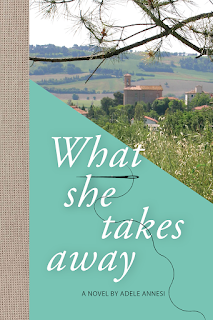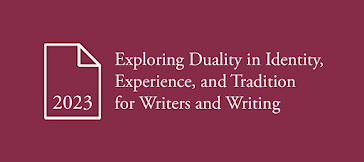Over the past decade, Connie and I have shared our lives and
stories, often through our Wellspring Writers fellowship. Not surprisingly, life-based
stories also make their way into writing. When more than half of a story and/or
the critical plot points and characters in a work of fiction are not only based
on real life but are actually part of real life, that’s autofiction. In this
post, we’ll consider these oft-asked questions on the genre:
What is autofiction
Why do writers choose the genre?
How can writers select and transform important life events, turning points, and discoveries into stories?
Autofiction usually is described as a combination of
autobiography and fiction. Although this makes the term easy to remember, it’s
more accurate to equate the nonfiction aspect with memoir. The main reason is
that where autobiography usually covers a person’s entire life, memoir typically
focuses on critical aspects of the person’s life, or a segment of it or a
running theme that ties selected events together. Regardless of how autofiction
is defined, there are practical reasons why writers work in the genre.
Most people go through a number of seminal events and turning
points throughout their lives, with epiphanies along the way—moments where a
sudden flash of insight illuminates the writer’s understanding of herself, her
world and the people around her. These elements often become part of stories in
a natural way. For example, if we’re writing a scene where the main character
moves from one part of the world to another and we’ve done the same, we’ll instinctually
draw on our experience to write this section of the story. What makes the segment
autofiction is when what happened to the character leading up to the move, the
realities of the move itself, and what results afterward (including flashes of
insight into what it means to undergo a major shift in geography, externally
and internally) forms the bulk of that section of the story. We’ve seen that
poor (or fortunate) soul who’s moving halfway around the world, and she is us.
Writers also write autofiction because they want to revisit certain
life events, changes and discoveries in order to better understand their lives
and the people in them, and convey what they’ve learned in the form of story. This
is especially true when there’s a particular theme involved, such as what it
means to have a dual heritage. The underlying principal is what Vivian Gornick refers
to in The Situation and the Story, on the art of personal narrative.
“Every work of literature has both a situation and a story. The situation is
the context or circumstance … the story is the emotional experience that
preoccupies the writer: the insight, the wisdom, the thing one has come to say
[about the circumstance].” Here, the writer has gone through something he wants
to recall, explore and reveal, and has come to the written page to speak of it
in a way worth remembering.
So how does a writer transform life into stories? In reality,
most writers, especially those who have been writing for a while, have an
innate longing to explore some key event in their lives. It could be a move,
career change, or life change. It could be something they’ve always wanted to
do but haven’t been able to. Taking time to look back is an important step in
deciding which aspects of life to cover. Even more important is “why”. What is
it that makes the event, turning point or discovery worth writing about, worth spinning
out an entire story for? The answer usually has to do with how much of an
impact the event had on the writer. If it made a lasting impression on her, it
could have the same effect on readers.
My new
novel, What She Takes Away (Bordighera Press, May 2023), is a work of autofiction.
Set largely in Italy, the story is based mostly on events in my life and my
mother’s, and the lives of her family. The actualities, especially the
discoveries, were worth writing about because they shaped our lives. And if
they shaped our lives, they’ll likely have impact the reader’s life. Isn’t that
what the best stories aim to do?
The weaver’s shuttle of story
turns in What She Takes Away when
aspiring fabric designer Gia Falcini receives a gift from her estranged father
in Italy that sparks a journey to his hillside village and new stepfamily, the
country’s style capital and a rare local textile mill that could shred Gia's
aspirations or offer a legacy worth taking away.
Adele Annesi is the author of What She Takes Away (Bordighera Press,
May 2023) and co-author of Now What? The Creative Writer's
Guide to Success After the MFA. Also a former
development editor for Scholastic Publishing, Adele has published works with 34th Parallel, Midway Journal,
Miranda Literary Magazine, The Pittsburgh Quarterly, the Washington
Independent Review of Books and Southern
Literary Review, where she was managing editor. Her work has been
anthologized for Chatter House Press and Fairfield University, where she
received an MFA in creative writing. Her essay on Italian citizenship is among
the Clarion Award-winning Essays About Life Transitions by Women Writers,
and she received the Editor's Choice award from the National Library of Poetry.
Adele’s sudden fiction has been adapted for the stage, and she has served as a
screener for the Ridgefield Independent Film Festival. She is currently a
columnist for The Authority and Book Marketing Matters, and a writing instructor for
Westport Writers’ Workshop. Adele’s long-running blog for writers is Word for Words, and her website is Adele Annesi.










